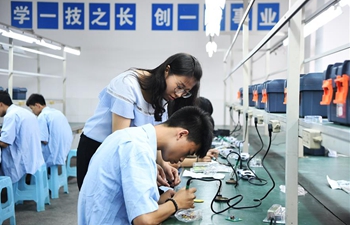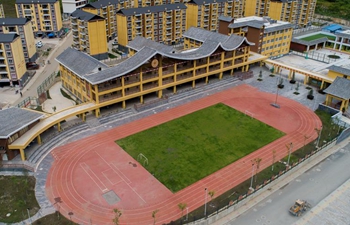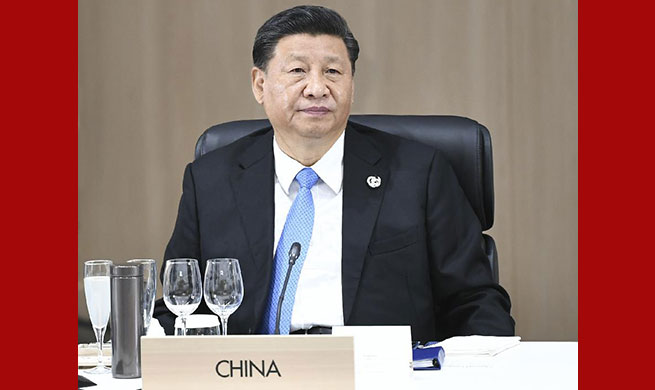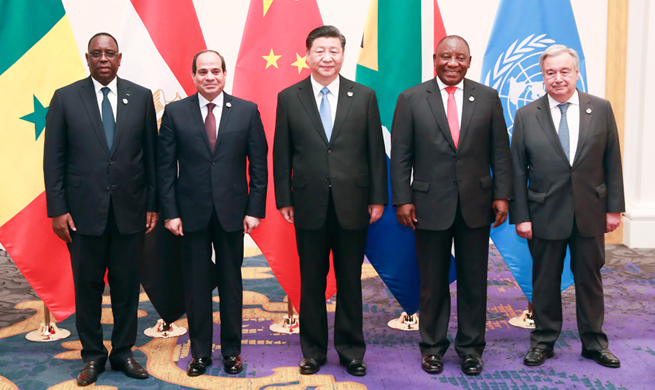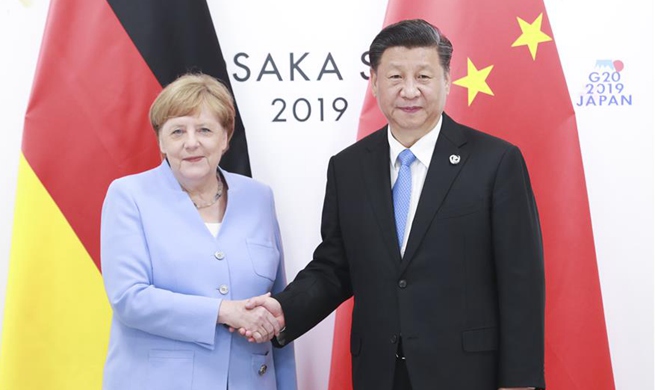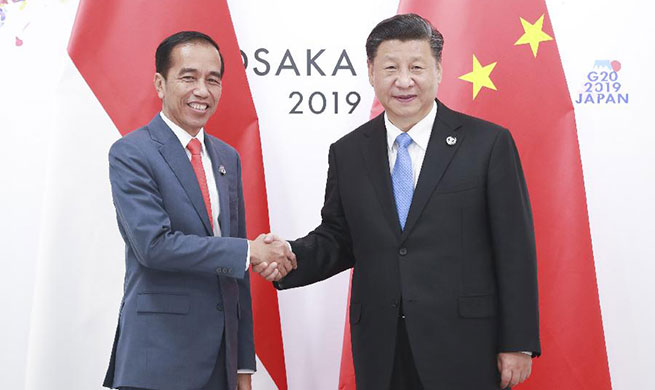by Mao Pengfei, Nguon Sovan
PHNOM PENH, June 28 (Xinhua) -- As the summit of the Group of 20 (G20) major economies is going on in Japan, Cambodian experts said on Friday the G20 should concentrate on strengthening rule-based multilateral economic system.
Chheang Vannarith, president of the Asian Vision Institute, said the main challenges for the global economy are the rising protectionism and unilateralism, geopolitical competition between major powers, and the heightening tensions in the Middle East.
"The direction of the G20 should focus on strengthening an open, inclusive and rule-based multilateral economic system," he told Xinhua. "China through the Belt and Road Initiative and other multilateral mechanisms can help maintain universal values of inclusiveness, openness, and the respect of international law."
Joseph Matthews, a senior professor at the BELTEI International University in Phnom Penh, said this summit is being held in the backdrop of trade dispute between the United States and most of the members of G20, such as China, Japan, India, and the European Union, among others.
"In my view, there will be nothing more important than tariffs all around the conference," he said. "For the G20 leaders, this will be a huge challenge, and coming out with an amicable solution seems to be a mission impossible."
Matthews said trade friction between the two giant economies will take everyone nowhere, but at the end everybody will lose.
"Neither side claims that it has benefited from trade war. It is absolutely a Lose-Lose policy, and it will produce more losers rather than winners," he said.
The professor said the G20 summit is a golden opportunity for the world leaders to discuss for the interest of global economy, not for the interest of selected countries.
"The world economy cannot afford a continued trade war on tariffs and politically motivated economic sanctions on other sovereign countries. I personally believe united we stand, divided we faltered!" he said.
Matthews said the summit will be a good opportunity for Chinese President Xi Jinping to work and interact with other world leaders and to promote the concept of multilateralism against the U.S. concept of unilateralism and protectionism.
Commenting on Xi's remarks delivered on Friday at the G20 summit in the Japanese city of Osaka, Matthews said his speech was a new milestone and relevant to the current global economy situation.
He said the majority of G20 members echoed the same message, except the United States.
"Unilateralism and protectionism are enemies of global economy and human prosperity," the professor said.
Ek Tha, a spokesman for the Council of Ministers, said the U.S.-China trade dispute, infrastructure investments, and climate are perhaps the three biggest challenges that should be the center piece at the G20 summit.
"The trade dispute impacts global growth, so it is very important for the two countries to put their differences aside by solving their problems through dialogues, rather than increasing tariffs," he told Xinhua.
At the same time, he said the World Trade Organization (WTO) should have its voice heard at the G20 summit that all stakeholders and members of the WTO need to respect the international rule in term of free trade.
"As a Least Developed Country, we want the ongoing trade dispute between China and the U.S. to be solved so that other countries can join hands, contributing to the global development for all," Ek Tha said.
"Cambodia is a strong supporter of multilateral trading rules and that means we highly appreciate the role of China in promoting multilateralism in the global economy," he said. "No one should be allowed above the global trading rules...and the WTO rules must be respected and implemented by all the stakeholders."
Kin Phea, director-general of the International Relations Institute of the Royal Academy of Cambodia, said the world economy is undergoing profound changes and faces many challenges, especially under the impact of trade protectionism and anti-globalization trends.
"The trade tensions between the U.S. and China as well as between the U.S. and its major trading partners could derail the hard-won virtuous cycle of investment growth, job creation and rising consumption," he told Xinhua.
He said the G20 should play a crucial role to make multilateralism prevail over unilateralism.
"The G20 should make sincere efforts to build an open world economy and safeguard the rule-based multilateral trading system," the scholar said.
They should let international trade and investment play their due roles in driving growth and innovation, creating jobs and facilitating sustainable development, he said, adding that the major economies should reduce trade barriers to allow free trade to prosper and resolve any disagreements through negotiations on an equal footing.
Meanwhile, Phea said China has been playing a very important role in the promotion of multilateralism in the global economy.
He said China has always been ready to work with the international community to restore confidence in multilateralism and globalization and to build an open and pluralistic world economy so as to shape a brighter shared future.
"China is a powerful shaper of a new global order, and a new global force of peace, stability, sustainable and inclusive development and prosperity," he said. "China has created a global non-discriminatory and inclusive platform of cooperation regardless of region, politics, level and stage of development, culture and religion."



